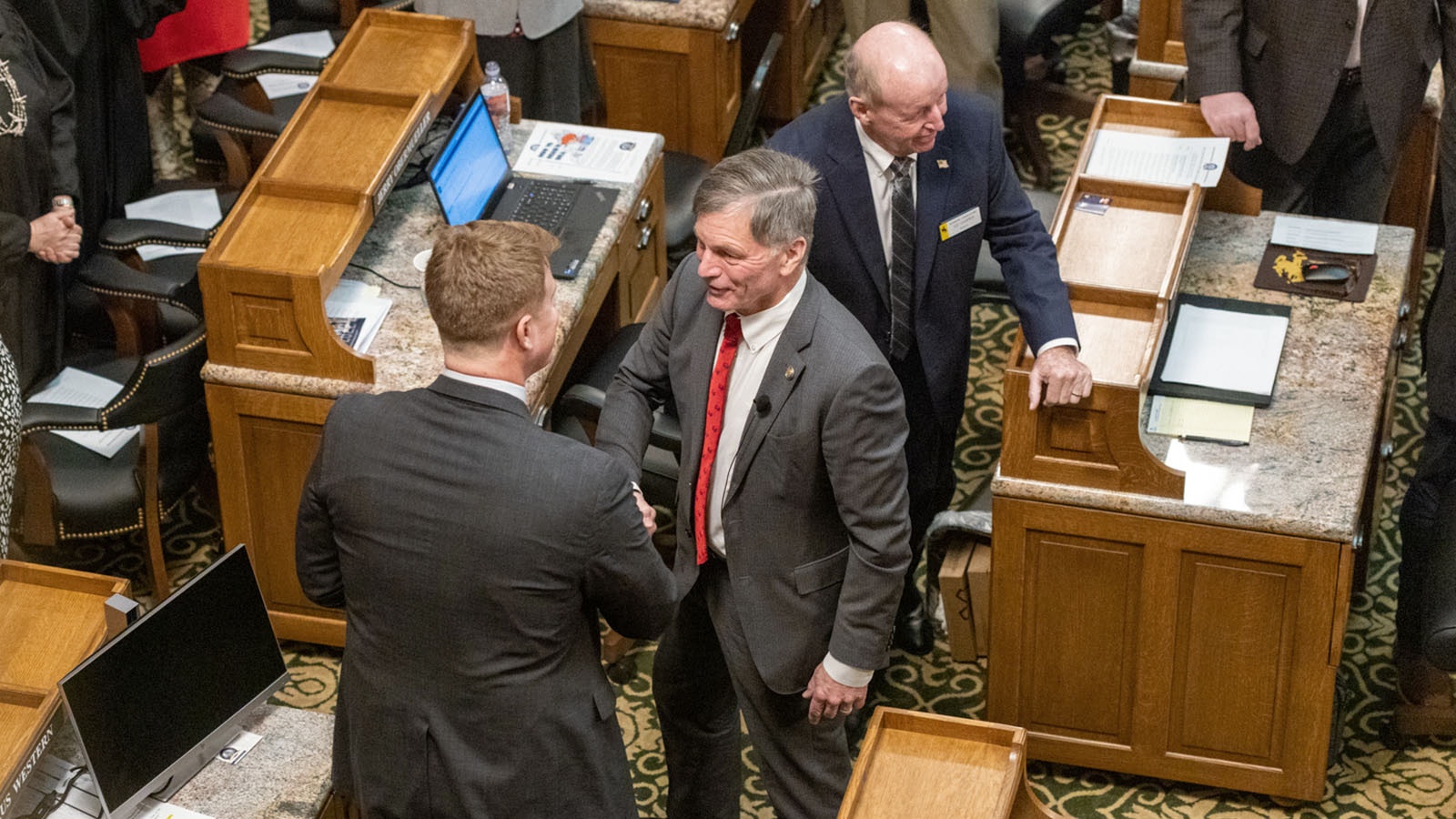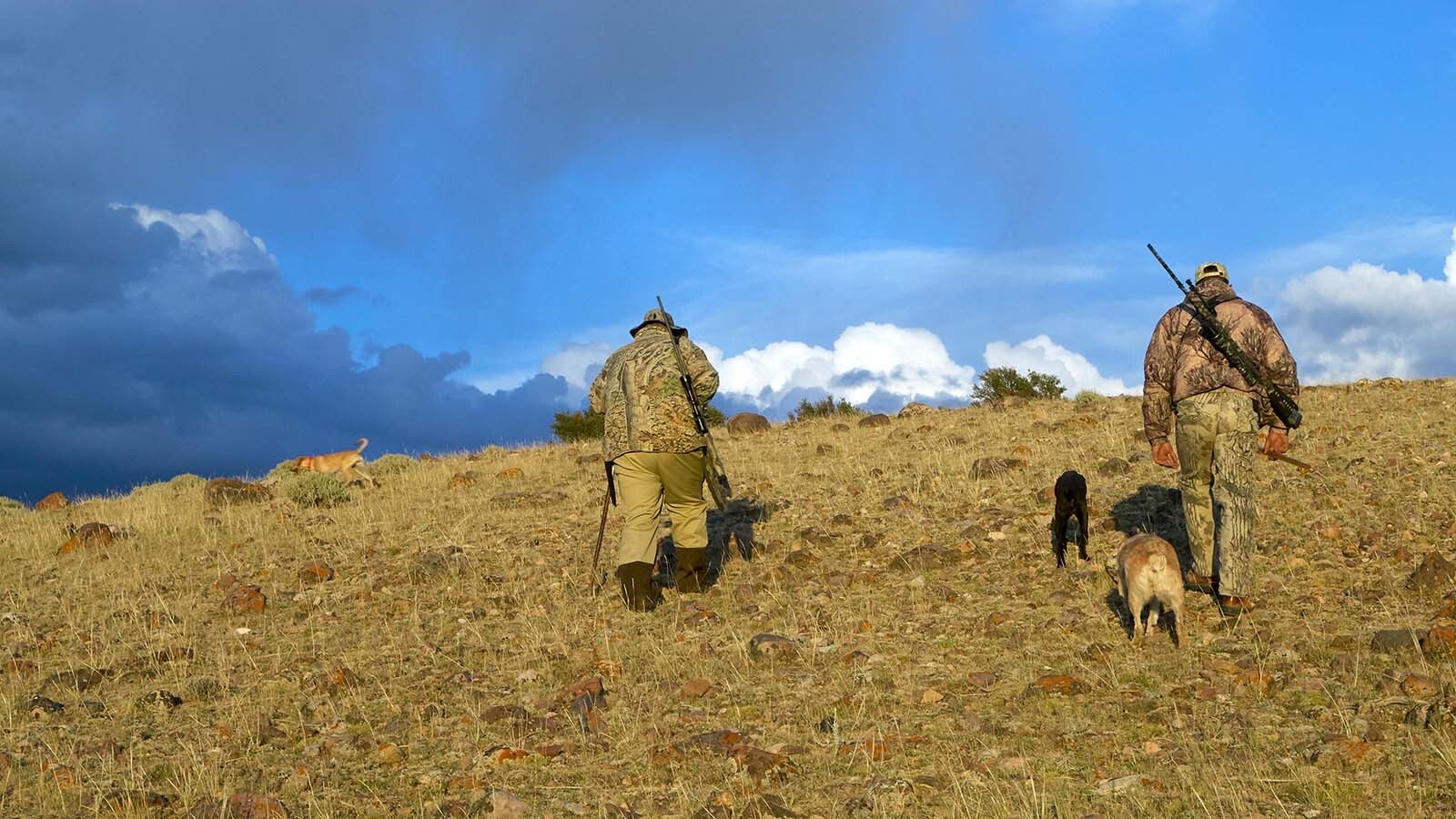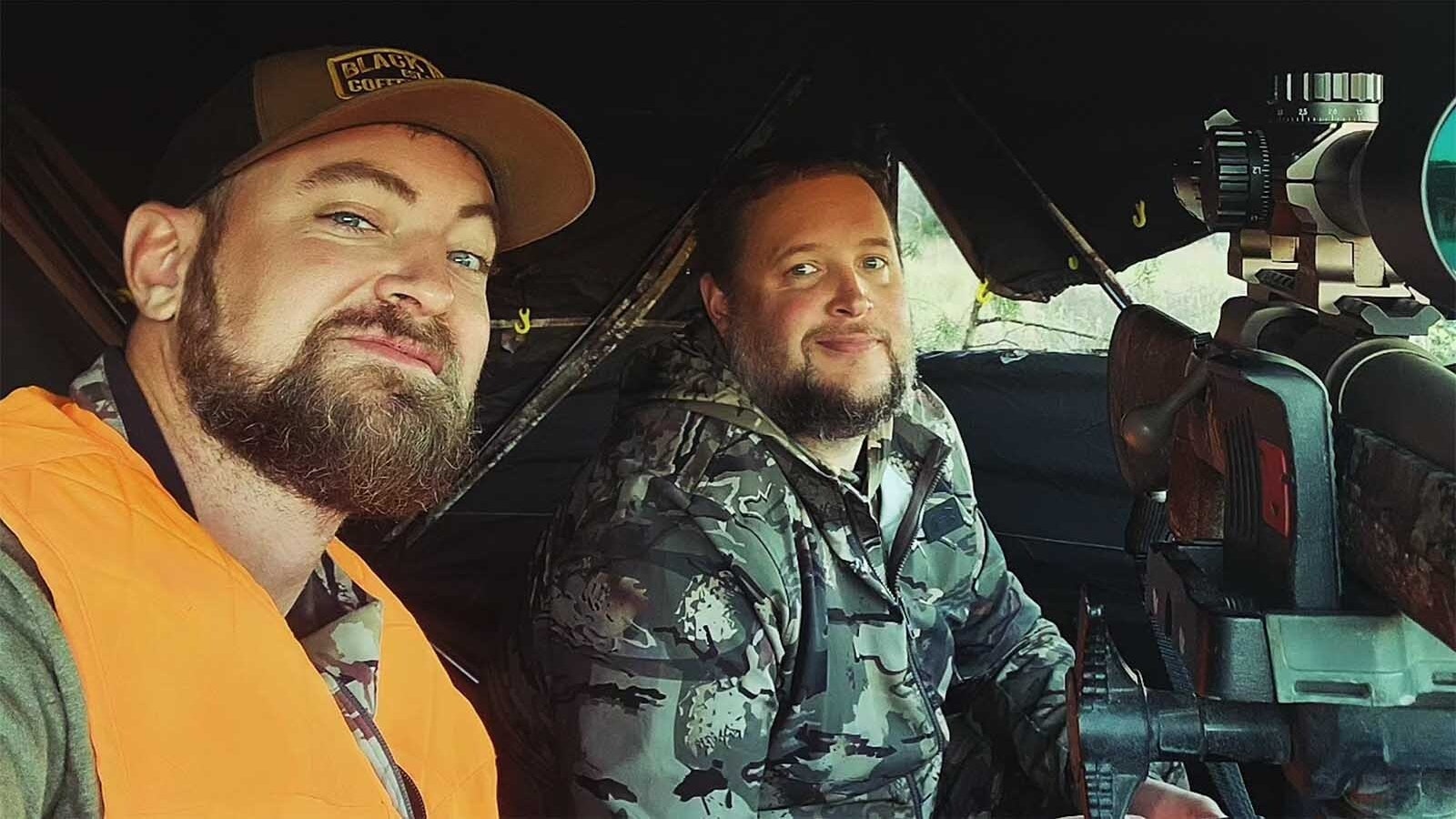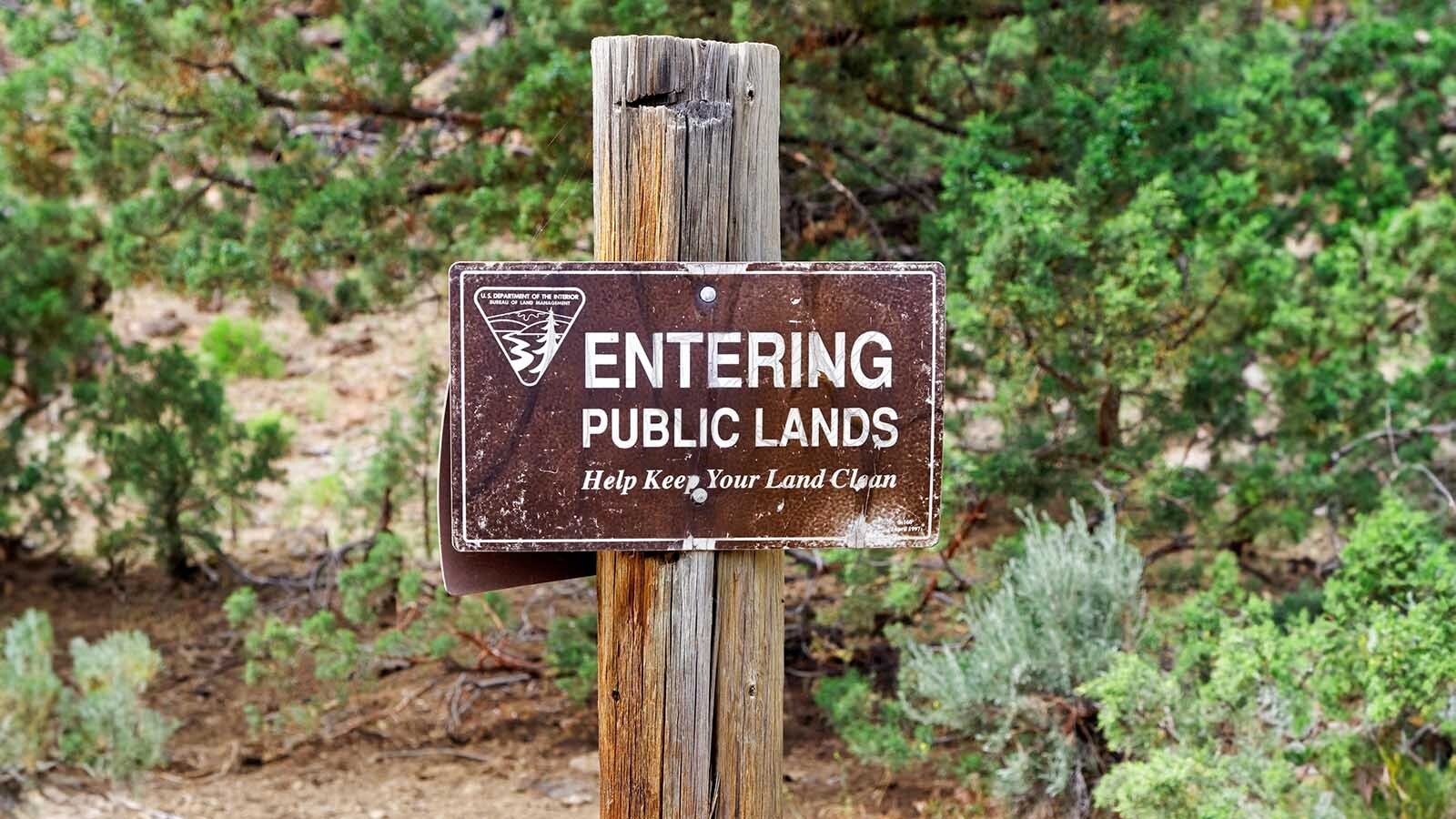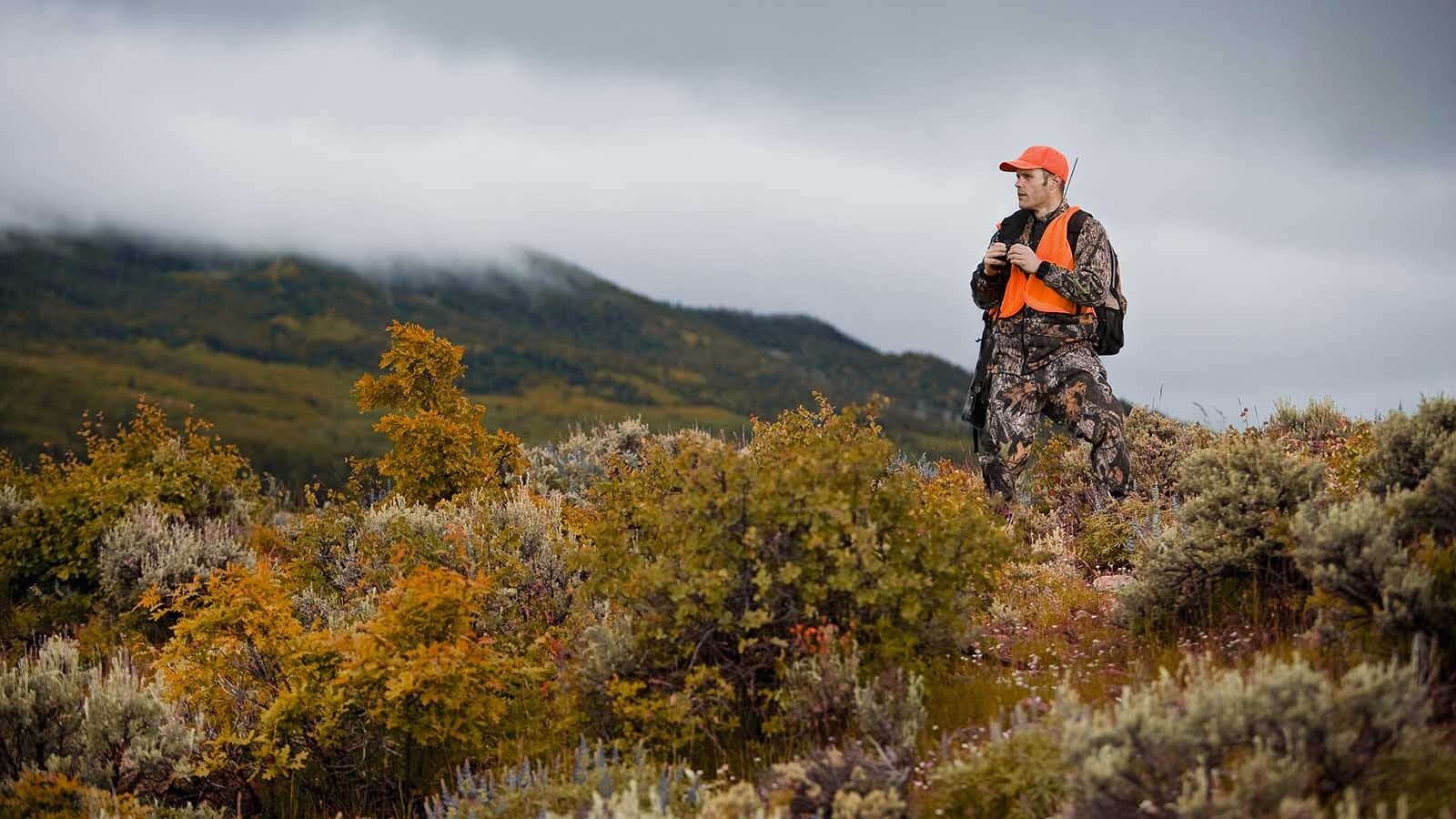Wyoming is considering passing a law that would give its governor the authority to negotiate terms for special, off-reservation hunting rights for members of some American Indian tribes.
Proposed law House Bill 83 would allow Wyoming Gov. Mark Gordon to build agreements with American Indian tribes to define special hunting privileges for their members beyond the state right to hunt that tribal members already share with non-tribal Wyomingites.
The Legislature’s House Appropriations Committee voted Tuesday to advance the bill; it now is being considered on the House floor.
Treaty Right
The push for House Bill 83 comes in the wake of the 2019 Supreme Court decision in Herrera vs. Wyoming, in which the high court held that Crow tribal members have a treaty right to hunt beyond the borders of their reservation. That right can be exercised only on unoccupied lands and in a way that doesn’t violate the state’s conservation needs.
Wyoming authorities had argued in the case that that treaty right ceased when Wyoming became a state in 1890.
The Supreme Court disagreed. It said the Crow tribe has a treaty right to hunt across the nation. The Eastern Shoshone and Shoshone Bannock tribes likely do as well, since they have similar treaty language.
However, both the definition of “unoccupied lands” and the extent to which Wyoming has conservation needs on its lands are still being litigated in Sheridan Circuit Court at the Supreme Court’s command – the last vestiges of the Herrera case. One that could shape off-reservation regulation of the tribal hunt.
The Debate
During the Wyoming House Appropriations Committee meeting Tuesday, lawmakers debated whether it’s appropriate to let Gov. Mark Gordon, rather than the Wyoming Legislature, set the terms of tribal hunting agreements.
The committee also heard from both the Eastern Shoshone (of Wyoming) and Shoshone Bannock (of Idaho) tribal governments: The Eastern Shoshone cautioned against changing or killing the bill. The Shoshone Bannock insisted that its tribal hunting right is so well established and its sovereign management so complete, it shouldn’t be limited by a state agreement at all.
By Whose Authority?
Tribal members living in Wyoming already can hunt outside of the Wind River Indian Reservation just like any other state resident: by applying for a license and following state hunting regulations.
But the Herrera case upheld hunting rights that likely go beyond the state’s system. These rights could be governed by a tribal game and fish system on federal and, possibly, Bureau of Land Management parcels throughout the state.
Kit Wendtland, tribal policy director for the governor’s office, told the committee that Wyoming should take advantage of the chance to strike a deal with the Eastern Shoshone Tribe while the tribe is inclined to do so.
Gordon has been in cooperative talks with the Eastern Shoshone leaders about their tribe’s hunting right, Wendtland said. He also said the governor has a good relationship with the tribal government, making it the right time to pass the bill.
Appropriations Committee Chairman Rep. Bob Nicholas, R-Cheyenne, questioned whether Wyomingites would be comfortable giving such momentous policy-making power to their governor, when the Legislature is the state’s lawmaking authority.
“One of the issues with this bill is it kind of takes our process and turns it upside-down,” said Nicholas, adding that the bill would shift policy-making power from the Legislature to the governor.
“Will our body the Legislature agree to give up the ability to do (this)?” he asked, before contemplating whether the bill could be changed to let the Legislature ratify the terms of the agreement.
Nicholas later voted in favor of the bill, however.
Hunting Rights Sacred To Non-Natives Too
Mike Ute, Eastern Shoshone Business Council Vice-Chairman, said the Shoshone tribal government would not support giving the Legislature more control over the agreement, and would see such a change as the state stalling to deny tribal hunting rights.
“We have to remember this is a federal treaty right that was there before the state of Wyoming even existed,” said Ute. If the Legislature tweaks the bill too much or the agreement itself, he continued, the tribe could ask if the state is trying to roadblock a treaty right.
“I fear that would lead to immediate litigation to figure out if you are stopping the tribe from exercising its treaty right,” said Ute. “There’s two options here: one is to work peacefully with the tribe and do things for the common good. The other is a judicial conflict.”
Nicholas countered, saying that non-tribal Wyomingites also want to defend their hunting rights, which are guaranteed in the state Constitution.
“The hunting rights of many folks in Wyoming are sacred. Just like they’re sacred to you,” said Nicholas, to Ute. “It’s a delicate balance for both sides to walk down a path that will not turn into physical conflict, legal conflict, and all of those issues.”
Nicholas’ physical conflict comment was in response to Ute’s fear that tribal members would clash with Wyoming law enforcement while trying to exercise their hunting rights if no agreement were in place.
Hash It Out In Court
Wendtland also stressed the threat of litigation following Herrera, saying that the state will have a “significant burden” to prove its conservation needs on a case-by-case basis.
Wyoming might have to fight for its primacy over each hunting region and its authority for each state regulation in court, Wendtland said.
HB 83, he said, would forge a path between the Eastern Shoshone Tribe – and possibly other tribes later on – and the state to be “cooperative and collaborative” so the parties don’t have to fight out hunting privileges in court.
What The Bill Says
If it passes the Legislature, HB 83 would let Gordon establish specialized agreements with individual tribes to define off-reservation hunting privileges.
Wyoming Game and Fish Director Brian Nesvik said the governor’s office is considering working with the Northern Arapaho tribe in the future. However, the Arapaho treaty language does not match the hunting rights upheld by the Herrera ruling, while Wyoming’s other recognized Indian tribe, the Eastern Shoshone’s treaty does.
The bill requires the following:
That the agreement be consistent with Wyoming statutes;
That the tribe in question have its own game regulatory code;
That the tribe can enforce its game code;
That the tribe agrees its members who don’t possess a valid license under the agreement will fall under state laws;
That the tribe agrees that violators of the tribal code can be prosecuted;
That the tribe will align its off-reservation hunting seasons with the state’s seasons, except in the case of special ceremonial hunts;
That both parties will agree to area closures for game recovery;
That the tribe will collect and share harvest data with the Wyoming Game and Fish commission;
That the tribe’s daily limits, quotas and possession limits won’t conflict with those of the state’s, and will help conserve the wildlife;
That no part of the agreement will let people hunt, trap, fish or gather on private property;
The governor’s office would also be required to report the agreement to the legislative Joint Travel, Recreation and Wildlife Committee within 10 days of completing it.

